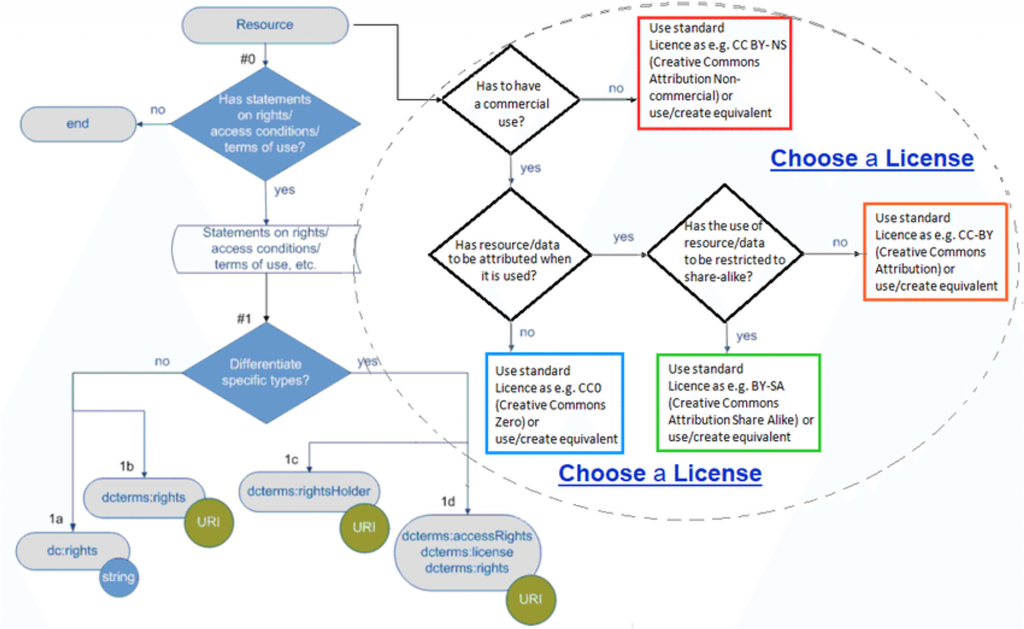Ein Angebot von







Access, Use & Reuse
RDM Consultation: Licenses
When it comes to publishing research data, the granting of licenses is particularly relevant because they establish the rules for data reuse. This is particularly important because the licensing determines who can reuse your research data and under what conditions.
If copyright or related rights apply to research data, various aspects of use can be regulated by corresponding individual contracts, such as the manner of use, user groups and duration, purpose, etc. This gives researchers maximum control over the reuse of their research data. Since contractual arrangements can be very time-consuming, there are various solutions for standardised regulations of usage rights.
License Model: Creative Commons
In general, licenses provide legal certainty for the both parts – the data provider and the user. Even when opting for no restrictions, it is important to formulate this explicitly. Various license models are available for this purpose. The most widely used among them is Creative Commons (CC). CC licenses cover copyright, related rights, and, in the current version, if applicable, database rights.
To find the right license, you can follow a decision tree.
Alternatively, you can simplify the process by using the CC License Chooser.
Example for a decision tree:

Combining different CC terms is possible in principle but not without challenges. You can find information on the possibilities and limitations of this approach in the following article: Understanding CC licence compatibility – A Guide to Creative Commons (pressbooks.pub)

